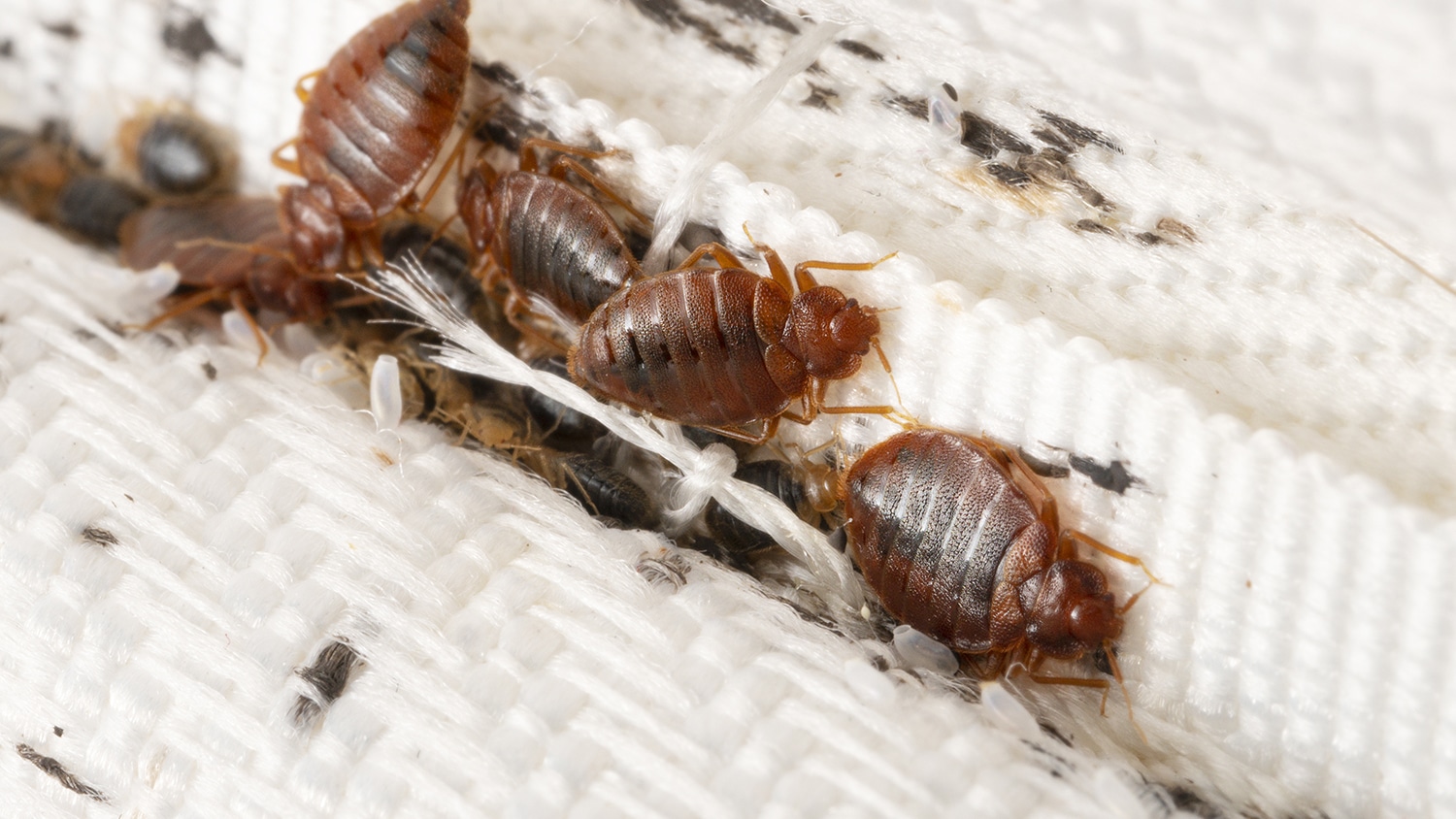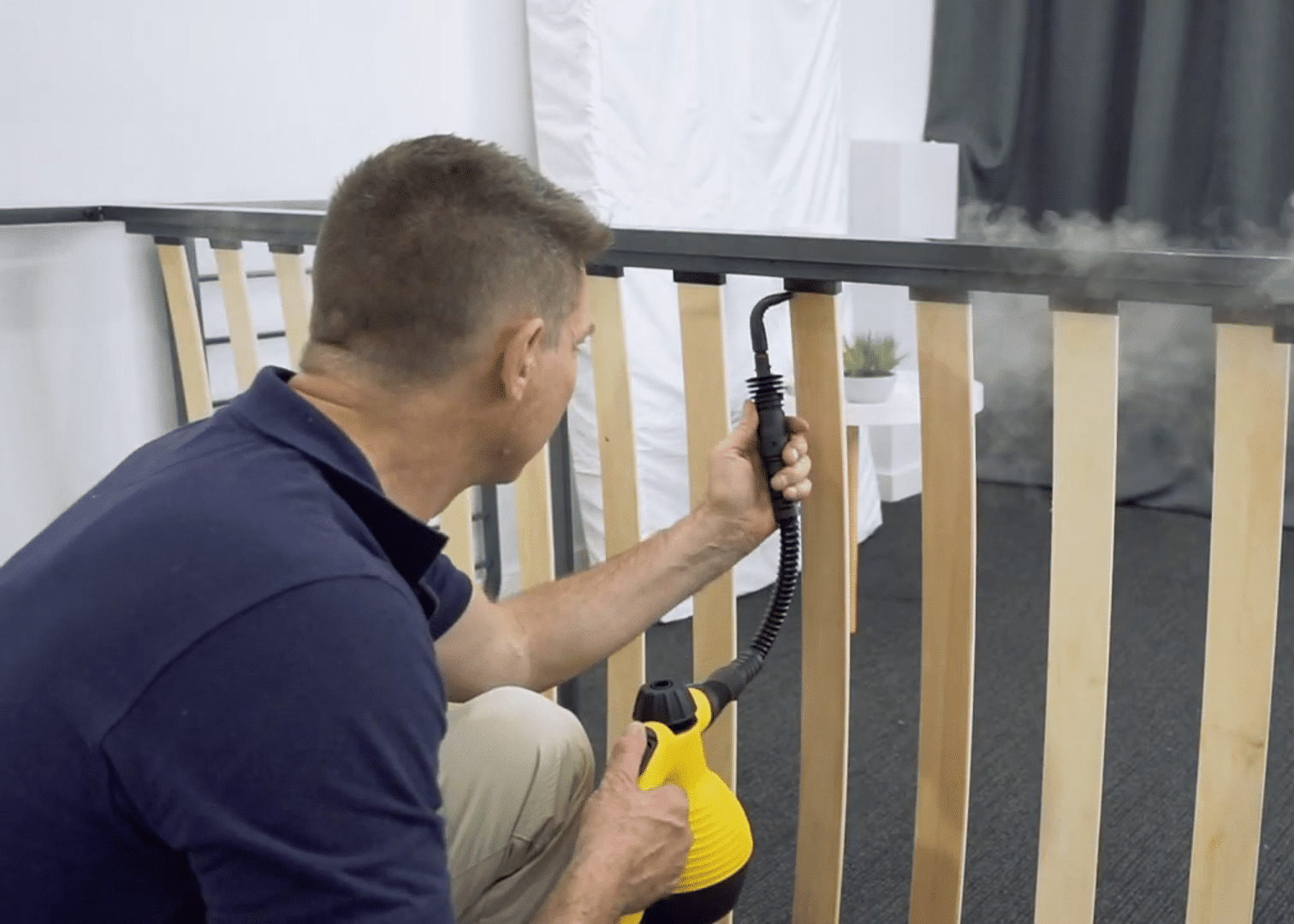
In the article
Last Updated on 09/04/2025 by Tony Abrahams
You’ve found bed bugs and might be asking yourself: “Is this my fault? Did I do something wrong? Are bed bugs due to poor hygiene?
Let’s clear this up: No, bed bugs are not caused by poor hygiene.
These pests don’t care if your home is tidy or chaotic, spotless or cluttered. They’re only interested in one thing—you.
Let’s dive into the facts and arm you with expert advice to tackle these unwelcome guests.
Do Bed Bugs Infest Dirty Homes More Often?
This is one of the biggest myths out there, and it’s simply not true. Bed bugs are equal-opportunity invaders.
Here’s why:
- Bed bugs don’t feed on dirt or crumbs. They feed on blood. It’s your body heat and carbon dioxide that draw them in, not the state of your home.
- Bed bug infestations can occur anywhere—from five-star hotels to crowded hostels to your neighbour’s pristine flat.
- The level of cleanliness might affect how quickly you notice the infestation, but it has zero influence on attracting bed bugs.
The takeaway?
A bed bug problem isn’t a reflection of poor hygiene—it’s often just bad luck.

Are Bed Bugs Due to Poor Hygiene
What Causes Bed Bug Infestations?
If cleanliness isn’t the issue, then what is? Bed bugs are hitchhikers, and here’s how they get around:
- Travel: Hotels, hostels, and even public transport are hotspots for picking up bed bugs. They crawl into your suitcase, backpack, or even clothing.
- Second-hand items: Furniture, mattresses, and even decorative items like picture frames can harbour bed bugs. Always inspect used items carefully before bringing them into your home.
- Shared living spaces: Flats, hotels, and dormitories are ideal environments for bed bugs to spread. They can move through walls, pipes, or under doors.
Key tip: Bed bugs don’t magically “appear.” They are usually brought into your home unintentionally. That’s why prevention and early detection are critical.
Can Cleaning Prevent or Eliminate Bed Bugs?
Here’s the truth: cleaning alone won’t prevent or eliminate bed bugs.
But that doesn’t mean cleaning is pointless—it can help in a few key ways:
- Vacuum regularly: This removes bed bugs, eggs, and their droppings from carpets, baseboards, and furniture. Use a vacuum with a HEPA filter for the best results.
- Declutter: The fewer hiding spots bed bugs have, the easier it is to treat an infestation.
- Wash bedding and clothes: Use hot water (above 60°C) and dry on high heat to kill any bugs or eggs.
However, cleaning alone isn’t enough. Bed bugs are resilient and can hide in tiny cracks, crevices, and even electrical outlets.
For complete elimination, you’ll need a reliable treatment method like the Bed Bug Barrier Isolation System, which combines immediate and long-term protection.
How to Identify Bed Bugs (Not Hygiene-Linked Pests)
It’s easy to confuse bed bugs with pests like fleas or cockroaches, which are often linked to poor hygiene.
Here’s how to confirm if you’re dealing with bed bugs:
- Bites: Look for small, red, itchy bumps, often in a line or cluster on exposed skin. These are tell-tale signs of bed bug bites.
- Blood stains: Tiny reddish smears on your sheets, caused by squashed bed bugs.
- Fecal spots: Small black dots (like ink stains) on your mattress, walls, or furniture.
- Shedded skins: As bed bugs grow, they shed their exoskeletons. Finding these translucent shells is another clue.
- Live bed bugs: Adult bed bugs are small (about the size of an apple seed), oval-shaped, and reddish-brown.
Pro tip: Use a flashlight to inspect mattress seams, bed frames, and any cracks or crevices in your furniture.

Bed bugs on mattress Australia?
Are Bed Bugs a Public Health Concern?
While bed bugs don’t spread disease, they can still have a significant impact on your well-being:
- Physical discomfort: Bed bug bites can cause itching, swelling, and allergic reactions.
- Mental health: Bed bugs are stressful. They can disrupt your sleep and lead to anxiety or even insomnia.
- Social stigma: Unfortunately, many people still associate bed bugs with poor hygiene, which can feel embarrassing.
Here’s the bottom line:
Bed bugs aren’t dangerous, but they are persistent and frustrating. Treating them quickly is the best way to protect your peace of mind.
How to Eliminate Bed Bugs Effectively
Bed bugs are notoriously tough to get rid of. They can hide in tiny cracks, lay eggs in hard-to-reach places, and survive for months without feeding.
So, what’s the solution?
The Bed Bug Barrier Isolation System is a game-changer. Here’s how it works:
- Instant relief: Use steam to kill live bed bugs and their eggs on contact.
- Long-term protection: Apply diatomaceous earth (a natural, non-toxic powder) to create a barrier that kills bed bugs over time.
- Isolation: Set up traps around bed legs and keep your bed at least 30cm away from walls or furniture to stop bed bugs from climbing in.
Why choose this system?
- It’s safe for your family and pets.
- It’s eco-friendly, with no harmful chemicals.
- It’s DIY, saving you the cost of expensive pest control services.
This proven method doesn’t just eliminate bed bugs—it prevents them from coming back.

Fastest Treatment for Bed Bugs
Final Thoughts
So, are bed bugs due to poor hygiene?
Absolutely not. They’re opportunistic hitchhikers that can show up anywhere, no matter how clean or dirty your home is.
The good news? You’re not helpless.
With the right tools and a clear plan, you can eliminate bed bugs for good.
Stop worrying about the myths. Focus on solutions.
The Bed Bug Barrier System is your ultimate defence—effective, eco-friendly, and guaranteed to work.
Take action today, and say goodbye to bed bugs once and for all.
Frequently Asked Questions: Are Bed Bugs Due To Poor Hygiene?
- Are bed bugs due to bad hygiene?
No, bed bugs are not caused by bad hygiene. They can infest any space, from spotless homes to cluttered ones. Bed bugs are solely attracted to blood and warmth, not dirt or cleanliness, so anyone can experience an infestation regardless of their hygiene practices. - Do bed bugs prefer poor hygiene?
No, bed bugs do not prefer poor hygiene. They thrive in places where they can easily access a host, whether the space is clean or dirty. While cluttered spaces may provide more hiding spots, bed bugs are just as likely to infest a well-maintained home as a messy one. - Does good hygiene stop bed bugs?
Good hygiene can help reduce clutter, making it easier to spot bed bugs early, but it won’t stop them completely. Bed bugs hide in cracks, mattresses, and furniture, so even the cleanest environments can become infested. The only way to eliminate them is through effective treatment and prevention methods.
Are You Looking for an Organic DIY Treatment?
Watch Our DIY Treatment Video For An Ensemble Bed
Watch Our DIY Treatment Video For A Bed with Slats
If you liked our blog, Are Bed Bugs Due To Poor Hygiene?, then you might like to read about How To Stop Bed Bugs?



Leave a Reply